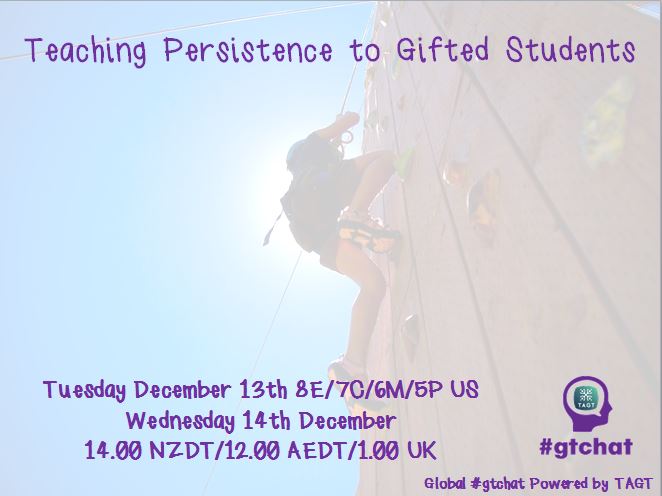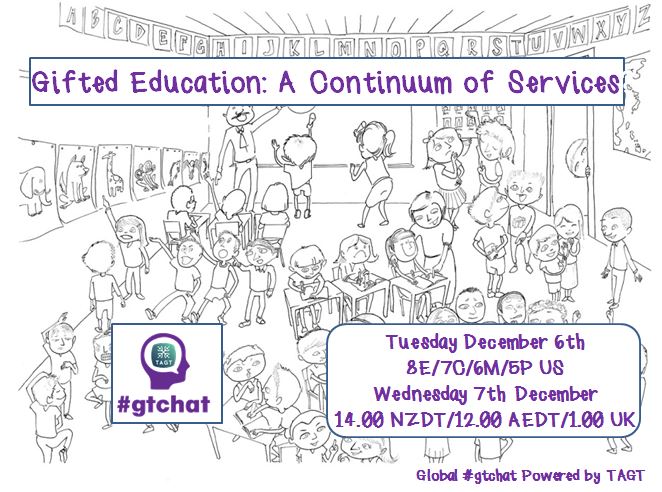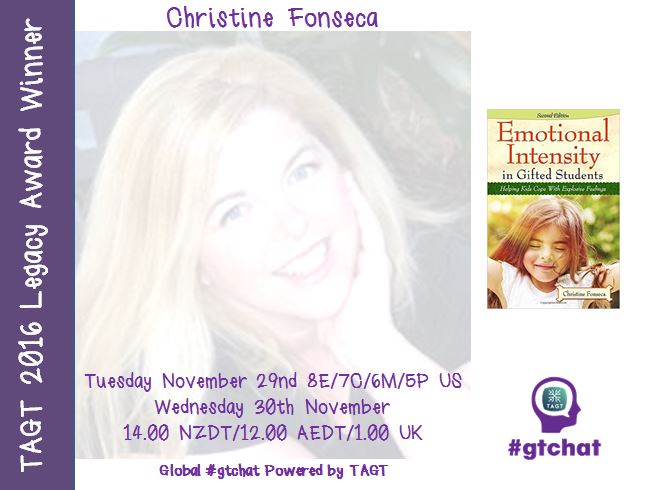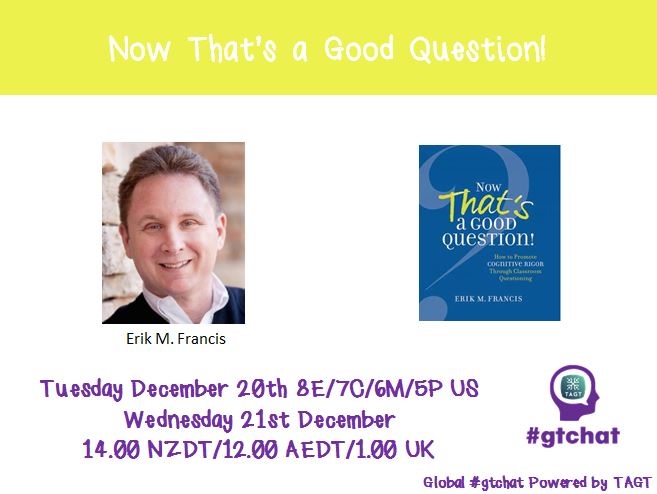
This week, Global #gtchat Powered by TAGT, welcomed ASCD author Erik Francis as our guest to chat about his new book, “Now That’s a Good Question!” It was an especially important topic for teachers of gifted students who often find themselves asking questions to which their students already know ‘the’ answer. Erik’s book is an excellent resource for learning how to ask good questions that engage students, elicit deep thinking, and provide a source for assessment.
We learned that there are a few things that a good question does. A good question should cause a student to think deeper, reflect on answers and want to know more. It should be unbiased; should result in discussion, thoughtful answers, and critical thinking; and deepen engagement. Good questions do not rely solely on what the teacher knows. Rather, they should broaden all participants’ knowledge. Erik pointed out that “answers can be correct, incorrect; or defended, justified, and refuted as right.”
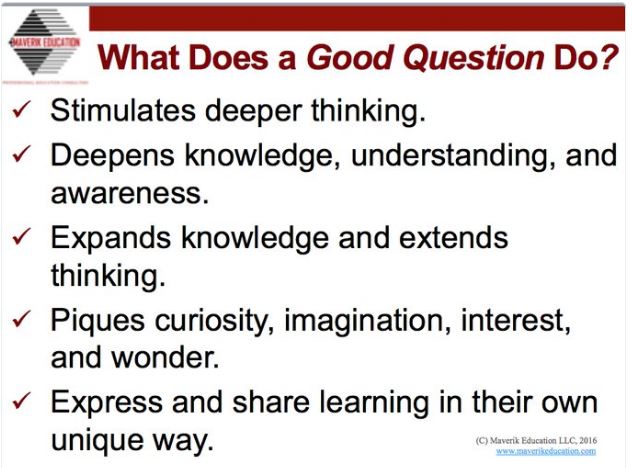
For gifted students, lines of questioning should consider cognitive rigor. Questioning for cognitive rigor is both a process and a product – higher order thinking (HOT) and depth of knowledge (DOK) together. It involves quality and quantity; a result of purposeful questioning. This type of questioning can improve communication skills as well; getting one’s point across. Questioning for cognitive rigor will increase deep thinking which leads to building a knowledge base.
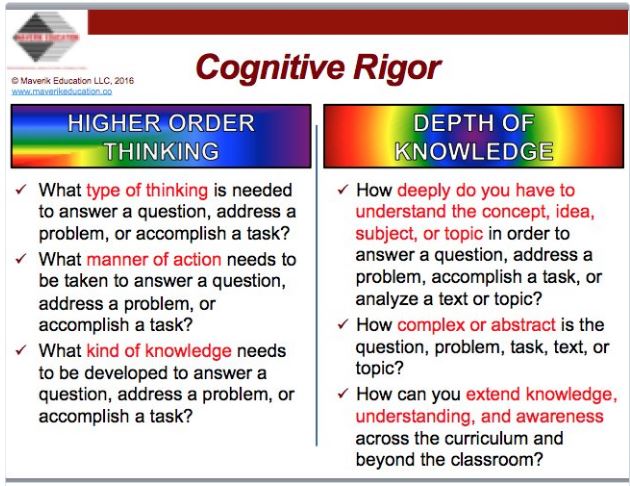
Good factual questions can set the foundation for deeper learning. They form the basis for learning background knowledge and basic understanding of a subject. Good factual questions will extend vocabulary, deep understanding of terminology & teach research methodology. According to Erik, “Factual questions are good questions. They stimulate thinking. How good they are depend on how students respond. Factual questions are used to guide students in acquiring and gathering background knowledge, and foundational understanding.”
How do hypothetical questions pique curiosity and creativity? Hypothetical questions prompt students to think about potential outcomes; to make predictions. They help students consider additional possibilities beyond initial results or answers. Erik told us, “Hypothetical questions also allow students to think critically and creatively in math, science, history and social studies. These questions prompt and promote creativity as well as creative thinking. What if that happened? What would that look like? I used hypothetical questions to have students create alternative history, historical fiction, and science fiction. They work so well to develop deeper conceptual and procedural understanding in math.”
Teachers can craft good questions by acknowledging student voice – considering student designed questions; what do they want to know. Good questions should include an explanation and evidence about what the question is asking. Teachers can consider questions that will be used to assess student knowledge at end of lesson. They should check to see if answer is ‘google-able’; learning beyond Google breeds authenticity in education. Teachers can also review standards, but restate them as questions. They can look at the text and create open-ended questions.
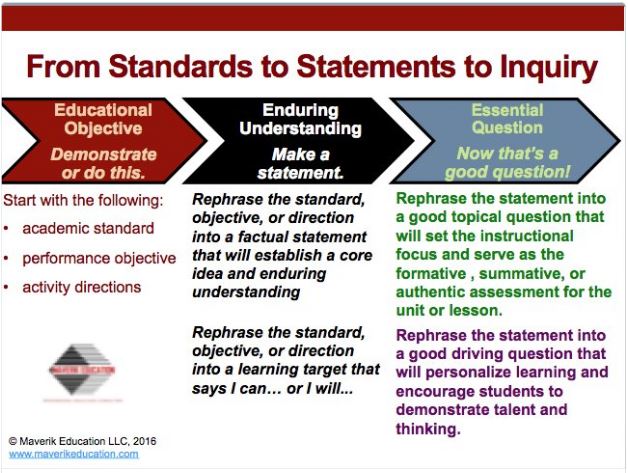
Finally, how can a teacher evaluate the effectiveness of their questions? Question effectiveness can be seen in student engagement. Do they want to learn more? Teachers should see evidence of understanding of subject matter through demonstration if questions were effective. They should check for deep learning by listening to how students answer questions in the final analysis. A transcript of this chat can be found at Storify.

Global #gtchat Powered by the Texas Association for the Gifted and Talented is a weekly chat on Twitter. Join us Tuesdays at 8E/7C/6M/5P in the U.S. and Wednesdays at 14.00 NZST/12.00 AEST/1.00 UK to discuss current topics in the gifted community and meet experts in the field. Transcripts of our weekly chats can be found at Storify. Our Facebook Page provides information on the chat and news & information regarding the gifted community. Also, checkout our Pinterest Page and Playlist on YouTube.
 About the author: Lisa Conrad is the Moderator of Global #gtchat Powered by TAGT and Social Media Manager of the Global #gtchat Community. She is a longtime advocate for gifted children and also blogs at Gifted Parenting Support. Lisa can be contacted at: gtchatmod@gmail.com
About the author: Lisa Conrad is the Moderator of Global #gtchat Powered by TAGT and Social Media Manager of the Global #gtchat Community. She is a longtime advocate for gifted children and also blogs at Gifted Parenting Support. Lisa can be contacted at: gtchatmod@gmail.com
Links:
Now That’s a Good Question! How to Promote Cognitive Rigor Through Classroom Questioning (ASCD)
Now That’s a Good Question! How to Promote Cognitive Rigor Through Classroom Questioning (YouTube)
Interview with Erik M. Francis on Principal Center Radio: Now That’s a Good Question (audio)
Maverick Education (Erik’s website)
#EduGladiators Podcast #3 – Asking Good Questions (Podcast 45:04)
ASCD (Website)
Ed Week: Teaching Questioning Skills to Arm Students for Learning (tiered subscription)
Questions We Should Be Asking Students
5 Question Structures to Improve Higher Order Thinking
Bloom’s Revised Taxonomy and Webb’s Depth of Knowledge for AIG
Cybraryman’s Questioning Techniques Page
Graphics courtesy of Lisa Conrad and Erik M. Francis.
